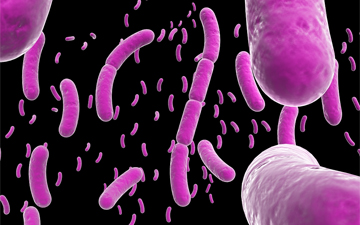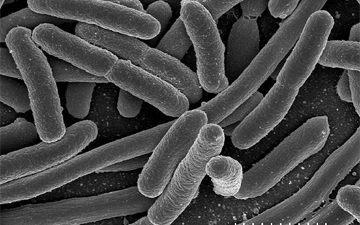Bacteria

Cyanobacteria
Prochlorococcus spp.



2 POINTS
Play: Prochlorococcus is a PLANKTON SPECIES.
Fact: This is possibly the Earth’s most plentiful species & accounts for an estimated 20% of the oxygen in the atmosphere.
cold, cool, warm, hot
Graphic by Derek Tanwww3.botany.ubc.ca/derek/portfolio.html
Photo by David Patterson and Bob Anderseneol.org/data_objects/27471868
Prochlorococcus is a genus of very small (0.6 µm) marine cyanobacteria with an unusual pigmentation (chlorophyll b). These bacteria belong to the photosynthetic picoplankton and are probably the most abundant photosynthetic organism on Earth. Microbes of the genus Prochlorococcus are among the major primary producers in the ocean, responsible for at least 20% of atmospheric oxygen.[1] Analysis of the genome sequences […] read more

Cyanobacteria
Tolypothrix spp.


Sorry, there is no photo available. If you have one, please submit
here
.
2 POINTS
Play: Tolypothrix spp. is a PLANKTON SPECIES.
cool, warm, hot
Graphic by Emilie Clarkwww.emilieclark.com
Cyanobacteria /saɪˌænoʊbækˈtɪəriə/, also known as Cyanophyta, is a phylum of bacteria that obtain their energy through photosynthesis.[3] The name “cyanobacteria” comes from the color of the bacteria (Greek: κυανός (kyanós) = blue). They are often called blue-green algae, but some consider that name a misnomer as cyanobacteria are prokaryotic and algae should be eukaryotic,[4] although other definitions of algae encompass prokaryotic organisms.[5] By producing oxygen as a gas as a by-product of photosynthesis, cyanobacteria are thought […] read more

Bacillus subtilis
Bacillus subtilis


Sorry, there is no photo available. If you have one, please submit
here
.
1 POINTS
Play: Bacillus subtilis is a PARASITE of any SPECIES card (except those under water).
Fact: can form a tough, protective endospore, allowing it to tolerate extreme environmental conditions.
cold, cool, warm, hot
Graphic by Maciej Górnyelectrofanatic.deviantart.com/
Bacillus subtilis, known also as the hay bacillus or grass bacillus, is a Gram-positive, catalase-positive bacterium commonly found in soil.[3] A member of the genus Bacillus, B. subtilis is rod-shaped, and has the ability to form a tough, protective endospore, allowing the organism to tolerate extreme environmental conditions. Unlike several other well-known species, B. subtilis […] read more

Escherichia coli
Escherichia coli



1 POINTS
Play: Escherichia coli has a MOVE of 1 and can beEscherichia placed next to (and underneath) any SPECIES card, no matter the TERRAIN.
Fact: Most E. coli strains are harmless.
cool, warm
Graphic by environmental-hazardenvironmental-hazard.deviantart.com/
Photo by NIAIDen.wikipedia.org/wiki/File:EscherichiaColi_NIAID.jpg
Escherichia coli (commonly abbreviated E. coli; pronounced /ˌɛʃɨˈrɪkiə ˈkoʊlaɪ/, named after Theodor Escherich) is a Gram negative rod-shaped bacterium that is commonly found in the lower intestine of warm-blooded organisms (endotherms). Most E. coli strains are harmless, but some, such as serotype O157:H7, can cause serious food poisoning in humans, and are occasionally responsible for […] read more